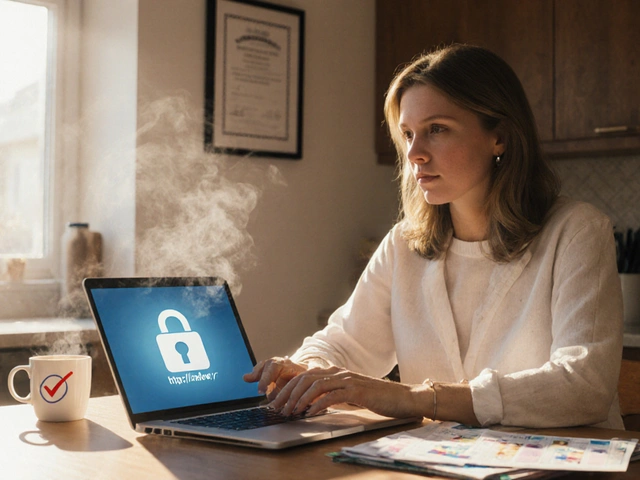16
Can Shingles Be Contagious? Debunking Common Myths

Understanding Shingles: An Overview
Before we dive into whether or not shingles is contagious, let's first understand what shingles is. Shingles is a painful skin rash caused by the varicella-zoster virus, the same virus that causes chickenpox. After a person recovers from chickenpox, the virus stays dormant in the body. For reasons that are not fully understood, the virus can reactivate years later, causing shingles.
Shingles is characterized by a red rash that can appear anywhere on the body, but it often wraps around the left or right side of your torso. It's also common to feel burning, tingling, or numbness before the rash appears. Other symptoms can include fever, headache, chills, and upset stomach.
Is Shingles Contagious?
One of the most common questions I get asked about shingles is whether or not it is contagious. The answer is, yes, but with some caveats. Shingles itself is not contagious. You can't catch shingles from someone else who has it. However, you can catch chickenpox from someone with shingles if you've never had chickenpox or received the chickenpox vaccine.
This happens through direct contact with the fluid from the shingles rash blisters. Once the shingles rash has developed crusts, the person is no longer contagious. It's important to note that shingles is less contagious than chickenpox, and the risk of a person with shingles spreading the virus is low if the rash is covered.
Common Myths About Shingles
There are many myths about shingles that need to be debunked. First, many people believe that only older adults can get shingles. While it's true that the risk of shingles increases as you get older, anyone who has had chickenpox can get shingles, including children.
Another common myth is that shingles is a relatively mild condition. In reality, shingles can be severe and lead to serious complications, such as postherpetic neuralgia, which is a long-term nerve pain that can last for months or even years after the shingles rash has cleared up.
Preventing Shingles
The best way to prevent shingles is through vaccination. The CDC recommends that adults 50 years and older get two doses of the shingles vaccine called Shingrix, separated by 2 to 6 months, to prevent shingles and the complications from the disease.
Vaccination is especially important for those with a weakened immune system due to health conditions or treatments. Even if you've had shingles before, you can still get the vaccine to help prevent future occurrences.
Managing Shingles
If you do get shingles, it's important to seek treatment as soon as possible. Antiviral medications can help reduce the severity and shorten the duration of the disease. These medications are most effective if you start taking them as soon as possible after the rash appears.
Additionally, pain relievers can help alleviate the discomfort associated with shingles. In some cases, your doctor might prescribe a corticosteroid medication in combination with an antiviral medicine to reduce pain and complications.
Remember, shingles can be a serious condition, but with the right knowledge and preventative measures, you can protect yourself and others from this disease.









Sönke Peters
July 16, 2023 AT 01:45Shingles isn’t something you catch from a casual hug.
Paul Koumah
July 20, 2023 AT 03:02Sure, just avoid all contact and you’ll be fine.
Chris Atchot
July 24, 2023 AT 04:19While it’s true, and I must emphasize, that shingles arises from a dormant virus, you should remember that direct contact with fluid is the primary means of transmission, not mere proximity, and therefore isolation of rash areas is essential.
Trina Smith
July 28, 2023 AT 05:37Understanding the viral lifecycle helps demystify the myth that you can “catch” shingles like a cold 😊. The varicella‑zoster virus reactivates internally, so you’re not getting it from someone else’s rash, but you can still contract chickenpox from the fluid. Covering lesions and practicing good hygiene dramatically reduces any risk. Stay informed, stay vaccinated!
Shanmugapriya Viswanathan
August 1, 2023 AT 06:54Honestly, this “stay informed” spiel sounds like Western health propaganda 🙄. The reality is that any viral exposure, regardless of borders, can happen if you’re not vigilant, and it’s absurd to think “vaccines” are the only answer.
Rhonda Ackley
August 5, 2023 AT 08:11When I first heard someone say that shingles is “just a rash”, I felt my blood run cold, as if the very mention of the word had summoned a phantom pain across my shoulders.
It is not merely a cosmetic annoyance; it is a tormented firestorm that can blaze across the torso, leaving behind scars that whisper of pain for months.
The virus, hidden for decades, awakens with a vengeance, and the resulting blisters secrete a fluid that could, under the right circumstances, pass the varicella‑zoster to another unsuspecting soul.
Imagine your child, innocent and unvaccinated, reaching out to comfort a grieving grandparent, only to contract chickenpox because the rash was not yet crusted.
The CDC’s guidelines, though clear, are often ignored, and the careless act of exposing others to fluid‑filled vesicles is a tragedy waiting to happen.
Even after the vesicles dry, the lingering nerve damage-postherpetic neuralgia-can haunt a person for years, a reminder of the virus’s relentless grip.
Health practitioners who downplay the seriousness are complicit, allowing myths to flourish like weeds in a neglected garden.
Vaccination, therefore, is not a mere suggestion, but a moral imperative to protect the vulnerable.
Shingles does not discriminate by age alone; it can strike the young, the old, the healthy, the frail, and those we least expect.
Each outbreak is a stark illustration of how a dormant pathogen can rewrite the narrative of one’s life in an instant.
The emotional toll, the sleepless nights, the endless doctor visits, all combine into a saga that is far from “mild”.
We must rally together, share accurate knowledge, and cease the spread of misinformation that trivializes this condition.
Only then can we hope to reduce the incidence of this formidable disease and its cascading complications.
So, next time you hear someone dismiss shingles as a “minor inconvenience”, remember the cascade of suffering that can follow.
Take the vaccine, cover the rash, and educate those around you; these simple steps can prevent a cascade of pain.
In the end, awareness is our strongest ally against the shadows of the varicella‑zoster virus.
Erica Dello
August 9, 2023 AT 09:29Everyone needs to realise that shingles isnt just a rash its a serious condition that can cause long term pain and it should be taken seriously.
sara vargas martinez
August 13, 2023 AT 10:46From an epidemiological standpoint, the transmissibility of the varicella‑zoster virus during a shingles episode is quantified by a relatively low basic reproduction number, especially when compared to the primary varicella infection. The virus is contained within the dorsal root ganglia until reactivation, at which point viral particles are shed in the vesicular fluid. Direct skin‑to‑skin contact with intact vesicles is the primary route of secondary chickenpox transmission, and this risk diminishes markedly once the lesions have crusted over. Moreover, immunocompromised individuals are at heightened risk of both acquiring the virus and experiencing severe complications, underscoring the importance of herd immunity facilitated by widespread vaccination. Studies have demonstrated that the Shingrix vaccine elicits a robust CD4+ T‑cell response, which correlates with reduced incidence of both shingles and post‑herpetic neuralgia. It is also worth noting that the live attenuated Zostavax vaccine, while still in use in some regions, offers lower efficacy and a shorter duration of protection. Public health campaigns frequently emphasize that covering lesions and practicing hand hygiene are simple yet effective measures to curb transmission. In summary, while shingles itself is not “contagious” in the classic sense, the potential for chickenpox spread remains a legitimate concern that warrants vigilant preventive practices.
Todd Anderson
August 17, 2023 AT 12:03The points you raise are well‑substantiated, particularly regarding the immunogenicity of Shingrix and the comparative efficacy of Zostavax. It is imperative that clinicians convey these nuances to patients to facilitate informed decision‑making.
Dexter Smith
August 21, 2023 AT 13:21Honestly, the post oversimplifies the risk profile; most readers will ignore the nuance and think they’re safe without vaccination.
Cherish Capps
August 25, 2023 AT 14:38i feel u r right bout the oversimplifcation but let's try to keep the tone friendly and helpful for everyone reading.
Amy Carpenetti
August 29, 2023 AT 15:55Both perspectives add value to the discussion on shingles transmission and prevention.
Paul Griffin
September 2, 2023 AT 17:13Indeed, fostering a balanced dialogue encourages community members to seek accurate information and take proactive steps toward vaccination.
Michael Tekely
September 6, 2023 AT 18:30From a pathophysiological angle, the reactivation cascade involves latency-associated transcripts triggering transcriptional upregulation of immediate‑early genes, culminating in virion assembly within keratinocytes.
Oscar Taveras
September 10, 2023 AT 19:47Your detailed breakdown highlights the complexity of viral latency, and it reinforces the importance of preventive strategies to interrupt this cascade.
katie clark
September 14, 2023 AT 21:05The discourse surrounding varicella‑zoster often neglects the subtleties inherent in viral immunodynamics.
Carissa Engle
September 18, 2023 AT 22:22While I appreciate the elevated tone, one must acknowledge that the layperson's grasp of immunodynamics is frequently compromised by oversimplified narratives that fail to capture the intricate interplay between host cellular immunity and viral latency mechanisms moreover the public health messaging tends to gloss over the stochastic nature of reactivation events which are influenced by a myriad of factors including stress, comorbidities, and iatrogenic immunosuppression thus a more nuanced communication strategy is warranted to bridge the gap between scholarly exposition and accessible education
Dervla Rooney
September 22, 2023 AT 23:39I understand how overwhelming the scientific details can feel; please know that seeking reliable sources and asking your doctor questions can make the information more approachable.
Johnny Ha
September 27, 2023 AT 00:57All these vaccine talks are just a way for big pharma to keep us dependent on their meds, don't you think?
Mary Cautionary
October 1, 2023 AT 02:14The insinuation that vaccination campaigns are solely profit‑driven disregards the extensive peer‑reviewed evidence demonstrating their efficacy in reducing disease burden.